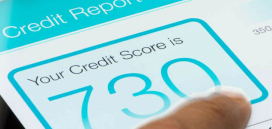What is Allied Account Services National Grid on my credit report?
Allied Account Services National Grid is a debt collection agency that specializes in purchasing and collecting overdue accounts. If you’re seeing them on your credit report you likely have an unpaid balance.
Is Allied Account Services National Grid a debt collection agency?
Absolutely, Allied Account Services National Grid functions as a debt collector. They acquire unsettled debts from creditors who have given up on collecting those amounts. Once Allied Account Services National Grid has your debt, they might contact you through mail or phone to seek payment. Having a collections account listed on your credit report can lower your credit score, affecting your ability to secure loans or other financial approvals.
Who does Allied Account Services National Grid collect for?
Allied Account Services National Grid acquires outstanding debts from various creditors. It’s hard to pinpoint exactly who they represent, as this data often isn’t shared widely and changes regularly.
Does Allied Account Services National Grid hurt my credit score?
If Allied Account Services National Grid is listed on your credit report, it likely has a negative impact on your credit score. Having a debt collection company on your credit report can significantly harm your credit score due to several factors. Here’s why:
First, it indicates that you have past-due debts that have been handed over to collections, reflecting a history of financial difficulty or non-payment. Second, it adds a negative entry to your credit history, impacting your payment history, which is a crucial component of your credit score. Additionally, collections can remain on your credit report for up to 7 years, continuously dragging down your score during that time.
Looking for help with your credit?
How do I remove Allied Account Services National Grid from my credit report?
For Allied Account Services National Grid to be removed from your credit report, certain conditions need to be met, such as finding inaccuracies or errors on the account. It’s alarming, but according to a U.S. PIRGs study, a staggering 79% of credit reports have mistakes. We specialize in addressing these issues for our clients.
Should I pay for a delete with Allied Account Services National Grid?
Credit Saint’s position is to always address any outstanding or unpaid debts so that they do not cause more potential harm in the future. However, remember that even after the item it paid, the collection will still remain on your credit history for 7 years from the date of delinquency of the original account. If you feel the item is reported inaccurately you have the right to dispute it.
Should I negotiate a settlement with Allied Account Services National Grid?
Step one is to contact the collection agency and discuss the account. Confirm the original creditor, confirm the account is yours, and discuss your options. If the collection agency is willing to work with you on settling the account for less than full balance, they can advise you of your options.
Still, as mentioned above, this may not automatically remove the damage from your reports. You can ask the collection agency representative what your options for deletion are. If they are not willing to remove the item and you feel it is inaccurate or in error, you have the right to dispute it to the credit bureaus.
Is Allied Account Services National Grid legit or a scam?
Allied Account Services National Grid is not fake or a scam. They are a legitimate business, however, their persistent calls might feel overwhelming. Addressing any unverified debts is one way to manage this.
Why does Allied Account Services National Grid keep calling me?
Allied Account Services National Grid is likely trying to recover a debt, which is why they keep reaching out. The worst thing you can do is ignore them. You do not want to have the situation be escalated to another collection agency or to have them seek legal action for the debt. Have a conversation with them about the account to review all the details of it.
How to get Allied Account Services National Grid to stop calling me?
To stop Allied Account Services National Grid’s constant calls, it’s advisable to collaborate with a professional agency like Credit Saint. By addressing the root cause, you can eliminate those disruptive calls for good.
Ready to talk with an expert?
4.8/5 stars based on 12,000+ Google reviews
What are my rights when dealing with Allied Account Services National Grid?
Remember, you’re entitled to contest any debt that Allied Account Services National Grid claims you owe. They operate under regulations set by the Fair Debt Collection Practices Act (FDCPA) and the Fair Credit Reporting Act (FCRA). These acts empower consumers, especially when leveraged correctly.
Will Allied Account Services National Grid sue me or garnish my wages?
The likelihood of Allied Account Services National Grid resorting to lawsuits is minimal. Though it can occur in exceptional situations, it’s not a standard practice. Various state and federal laws provide protections against wage garnishment. If concerned, reach out to us for expert advice and guidance.
Does Allied Account Services National Grid accept a goodwill letter?
From our experience, Allied Account Services National Grid typically does not entertain goodwill letters for removing collection records or charge-offs.
What do Allied Account Services National Grid reviews say?
Allied Account Services National Grid’s reviews on BBB aren’t favorable. Their aggressive approach to debt collection is likely a significant factor behind the negative feedback.
What is Allied Account Services National Grid phone number?
Before considering reaching out to Allied Account Services National Grid, we suggest contacting Credit Saint first. Why? It’s essential to ascertain the legitimacy of the claimed debt. A hasty payment might inadvertently affect your credit health.
Bottom line
Before trying to settle any debt, we recommend seeking advice from a credit repair expert. Settling might seem like a solution, but it can sometimes do more harm to your credit score depending on the scoring model being used, or the type of credit trying to be obtained.





